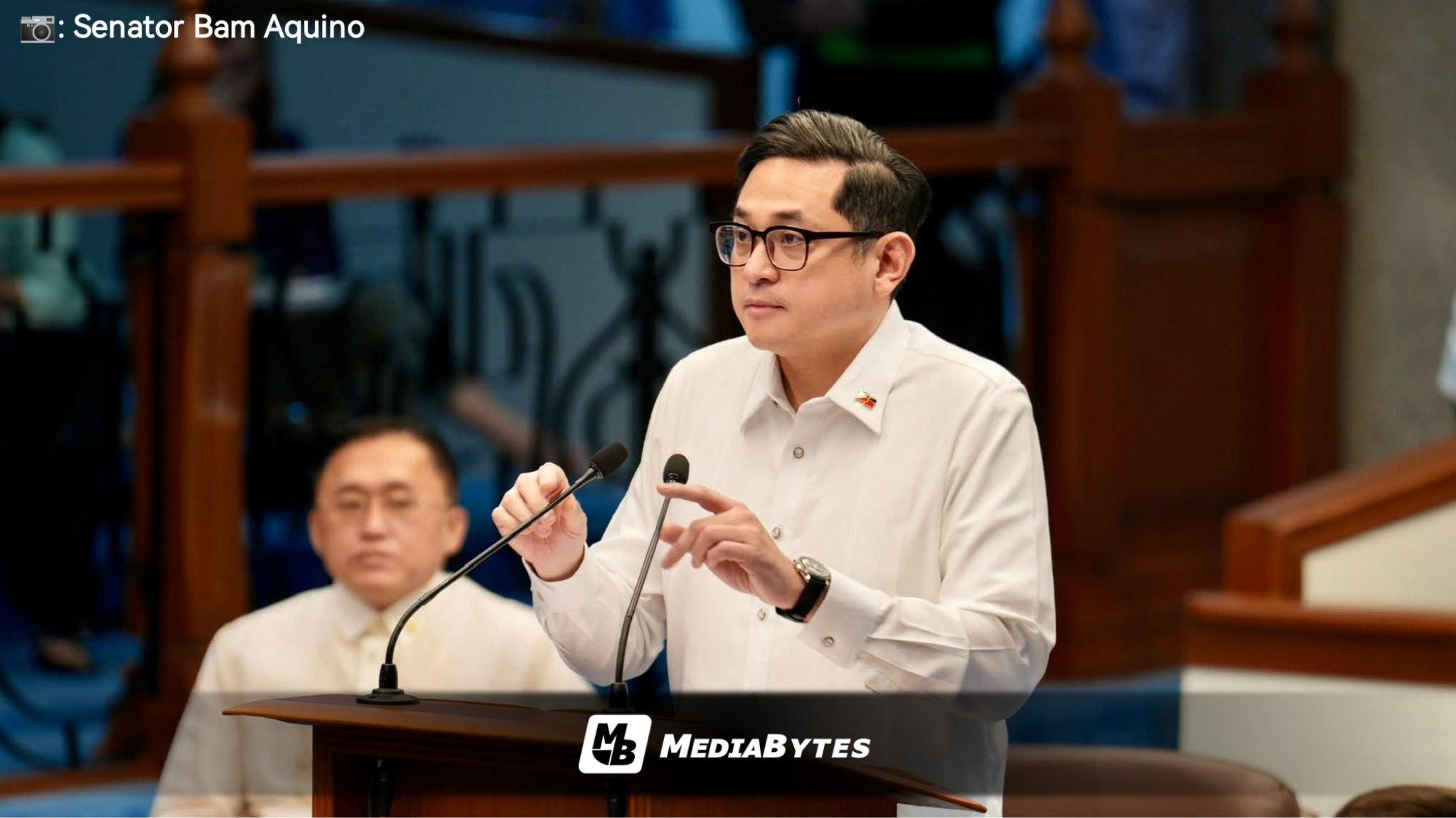
Senator Bam Aquino has pressed the government to fully implement the Free Internet Access in Public Places Act (RA 10929), lamenting that students and teachers have yet to enjoy the law’s promised benefits—eight years after its passage.
Aquino, who chairs the Senate Committees on Basic Education, and Science and Technology, sounded the alarm over the lack of connectivity in schools, revealing that 12,000 public schools nationwide remain without internet access.
“According to DepEd (Department of Education), 12,000 schools still do not have internet connection. In our committee on Science and Technology, we will know what the plan is to fill this gap and if this number is correct,” Aquino said in a privilege speech on Monday, August 18.
“For students who do not have a connection at home, the lack of internet at their school is an additional problem and expense for them and their parents,” he added.
“I will repeat: internet connection at school is important and very important. It’s 2025 and the country and our youth cannot be offline,” Aquino stressed.
The senator, principal sponsor and co-author of RA 10929 in 2017, warned that the government’s failure to deliver free WiFi deprives students in far-flung areas of equal learning opportunities while burdening their families with added costs.
Aquino also linked the law’s implementation to his proposed e-Textbook Para Sa Lahat Act, which seeks to make all DepEd-approved textbooks digitally available for free on official platforms.
From 2018 to 2024, the government allocated nearly ₱18 billion for the free WiFi program. But Aquino noted that only 18,000 sites have been activated—far from the law’s intended scope.
Senators Loren Legarda and Robin Padilla backed Aquino’s push.
Legarda said she wants accountability: “I am one with you first in knowing why there is a slow implementation of the law. Is it just funding or something else? Second, I’d like to know also where the ₱18 billion went and how much would it cost for all DepEd schools, SUCs (state universities and colleges), ports, airports, terminals, bus terminals, and public hospitals, and even town plazas and parks.”



